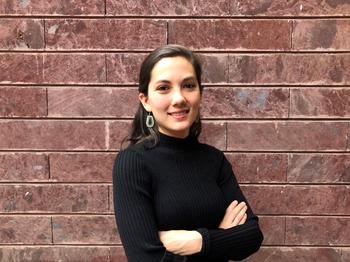Ana Elena Pascoe Rodríguez

International Research Training Group 'Temporalities of Future'
Political Science
PhD Candidate
Project: "The Imagination of the Demos in the Digital Public Sphere"
Education
|
07/2021 – 07/2023 |
M.A. in Political Science at El Colegio de México, Mexico |
|
07/2017 – 07/2021 |
B.A. in Political Science and International Affairs at Centro de Investigación y Docencia Económicas, Mexico |
Work Experience
|
06/2021 – 09/2021 |
Research assistant at Harvard University to Ph.D. candidate, Kaitlyn Chriswell |
|
08/2020 – 03/2021 |
Intern at Innovations for Poverty Action for project: “Rebuilding Effective, Resilient, and Trusted Police Organizations in Mexico City” |
|
04/2020 – 08/2020 |
Research assistant at University of California-Davis to Lauren Young, Ph.D. |
|
08/2019 – 07/2021 |
Research assistant at Centro de Investigación y Docencia Económicas to Luis de la Calle Robles, Ph.D. |
Project: "The Imagination of the Demos in the Digital Public Sphere"
The thesis aims to investigate, through the analysis of theoretical formulations, the ways in which the demos is imagined in the new digital public sphere and asks how the demos could be maintained or self-constituted as a political entity in the future. Based on the political theory of Jürgen Habermas, the starting point is the transformation of the communicative format and thus in the forms of recognition among the members of the same political community. In contrast with the pre-digital era, when citizens interacted in physical spaces or in vertical formats, the increasing use of digital platforms makes current exchanges on public issues more immediate and less mediated by democratic institutions. In this sense, the argument put forward in the thesis is that, in the digital public sphere, manifestations of the demos are much more frequent and the conflict between positions and points of view is rendered more visible. In turn, with the advent of a dynamic and conflictive digital public sphere, it becomes clear that the consolidation of certain level of public reason – that is, a shared standard of rational criteria – is unfeasible. By analyzing the new time horizons that new digital interactions introduce into democratic imaginaries, the thesis seeks to show that the hidden requirements for sustaining abstract and shared notions of the demos, its public reason – and, consequently, popular sovereignty – are withering away.


